I am now obsessed with abstract stained-glass mosaic. I recently completed two small studies on 6×6-inch plywood backers in preparation for some larger compositions.
These larger compositions will be semi-abstract with the outlines of figures hidden in Fauvist contours. I am very excited about these coming works because they will make use of contoured andamento, which I consider to be the most visually interesting mode of mosaic.
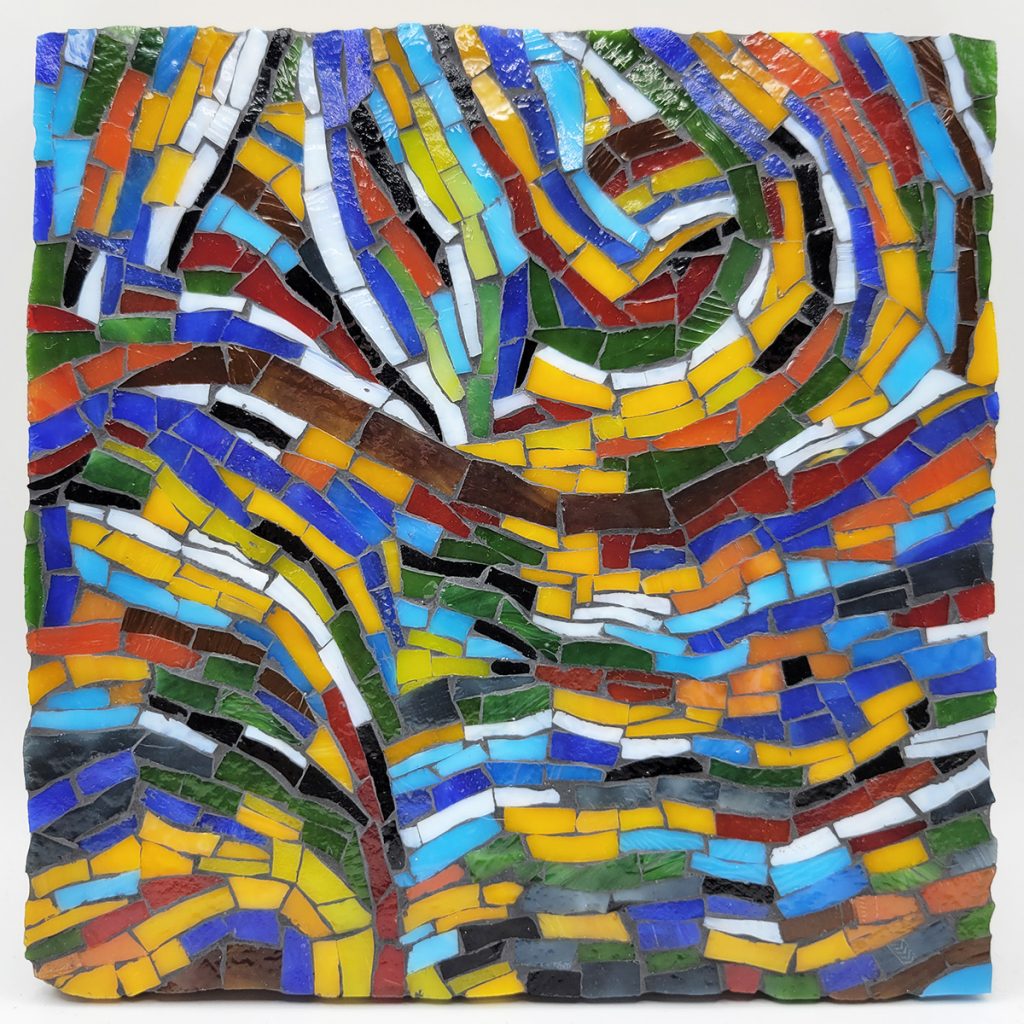
My First Abstract Mosaic
The mosaic above is my first attempt at abstract mosaic, and the results thrilled me because I can look at this and see all the many different variations that are possible, various color schemes, semi-abstract compositions, etc.
I am particularly excited by the possibilities of semi-abstract variations that include the outlines of various figures. These figures could be as mottled in color as the backgrounds or colored differently. I see many different variations and degrees of abstraction.
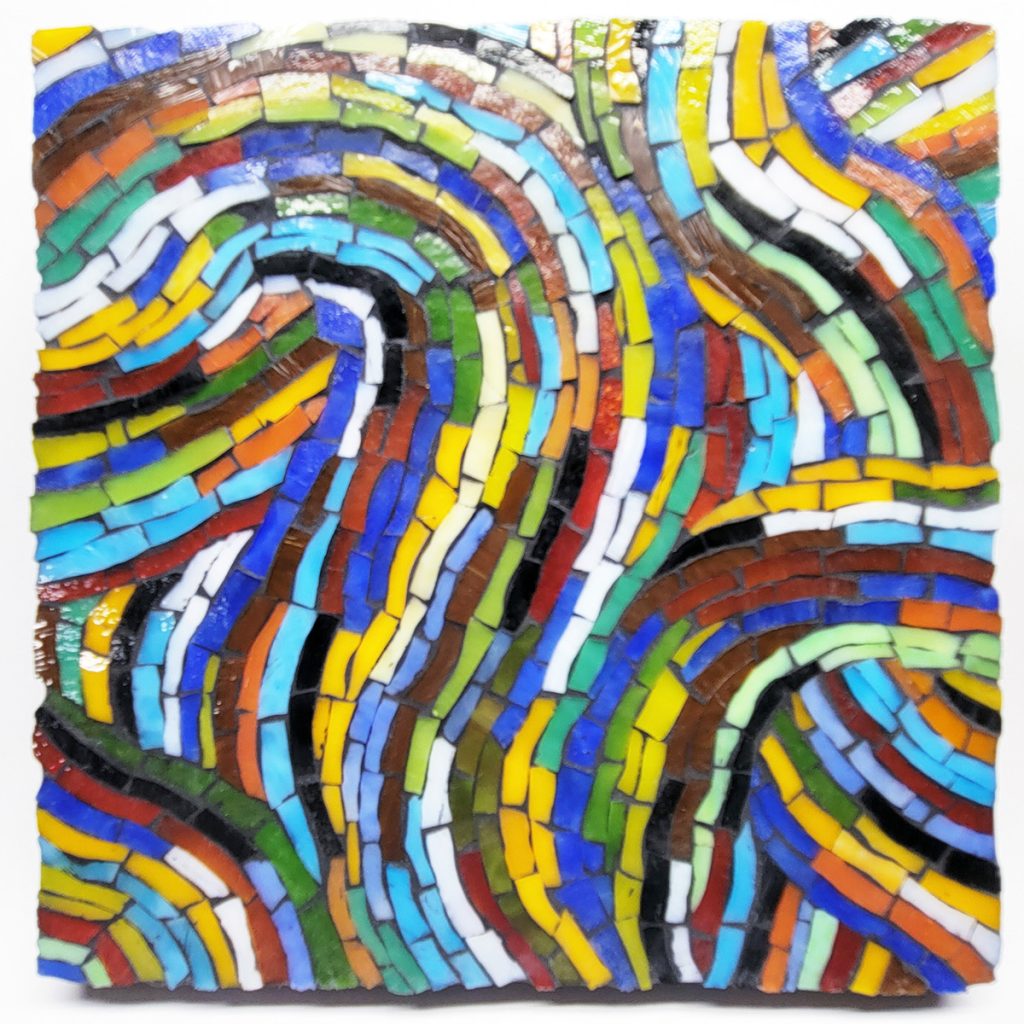
The Power of Series
I made certain that the second mosaic I made was the same 6×6-inch size as the first mosaic.
Keeping the size the same allowed me to work much more quickly and efficiently than I would have if the size of the second mosaic were different because I didn’t have to change the scale of what I was doing.
Producing a series of mosaics of the same size not only allows you to work faster and more precisely, it also allows you to compare apples-to-apples in evaluating the results. You can try different variations and do experiments.
This is exactly what I did for my second abstract mosaic.
I made the strands of colors longer and more consistent with fewer discontinuities in the work lines.
I love looking at these two side by side and thinking about what other variations are possible:
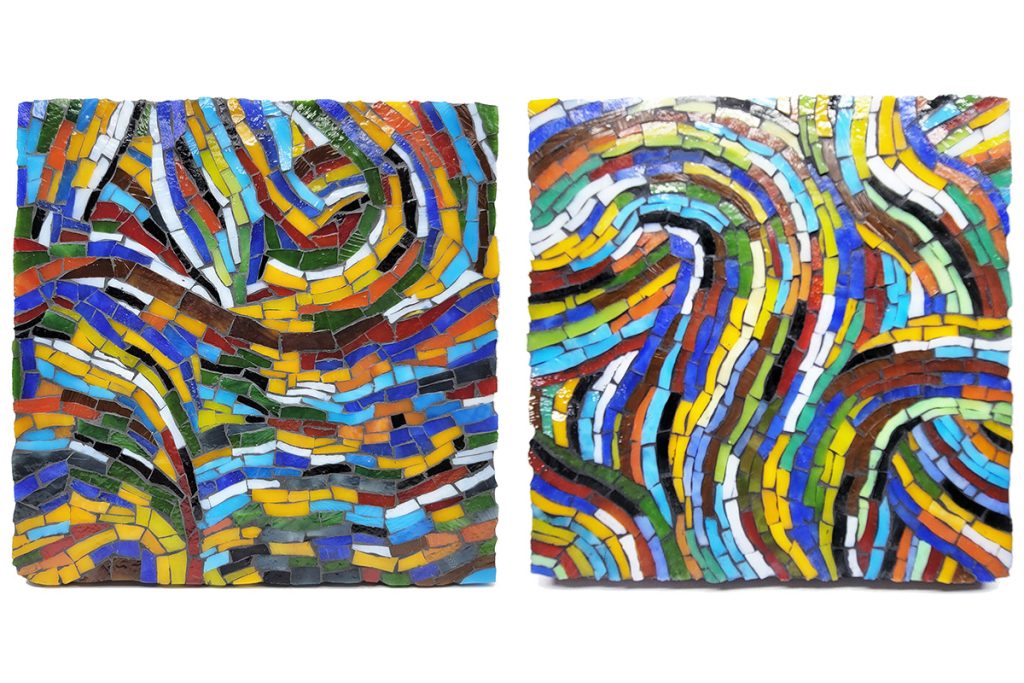
Small Easels
The small easels used to display fine china is what I use for displaying my small mosaics.
I like my mosaics to be handled and not hung on walls like paintings.
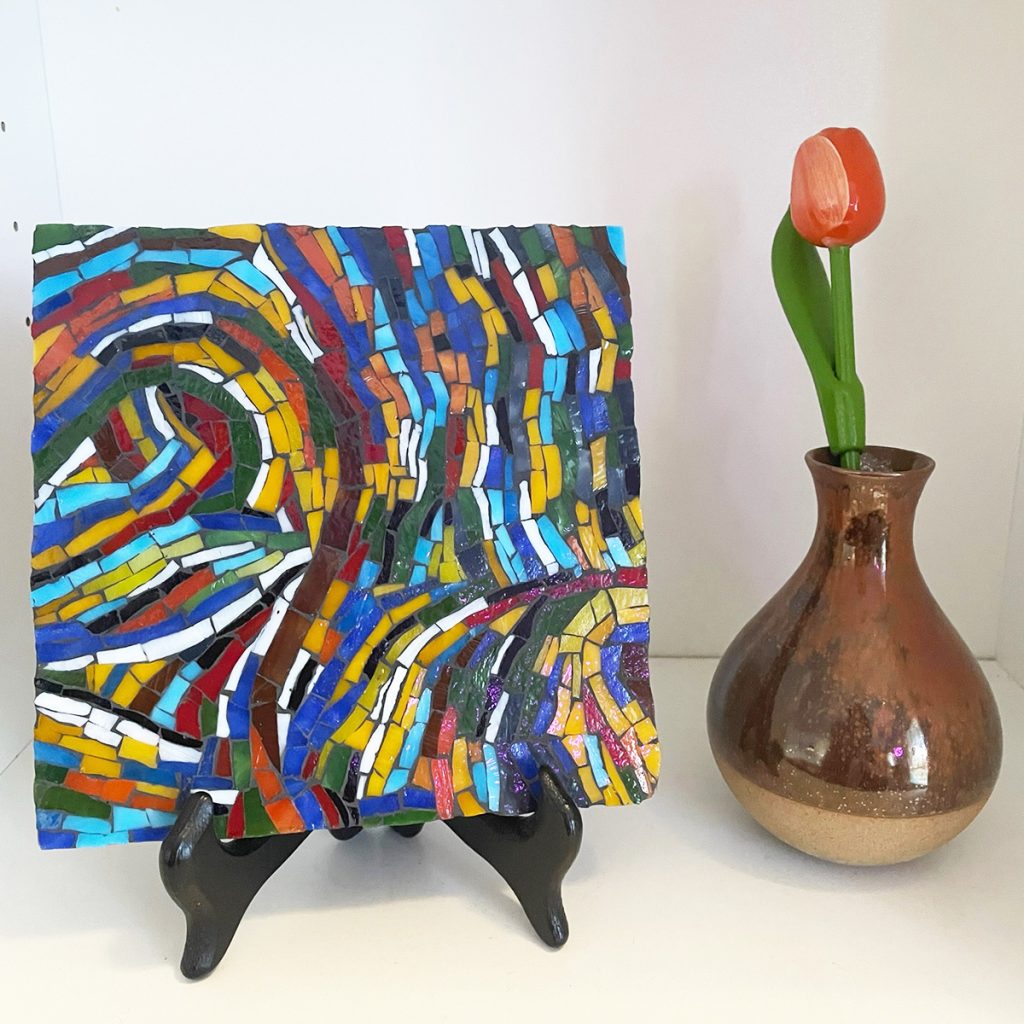

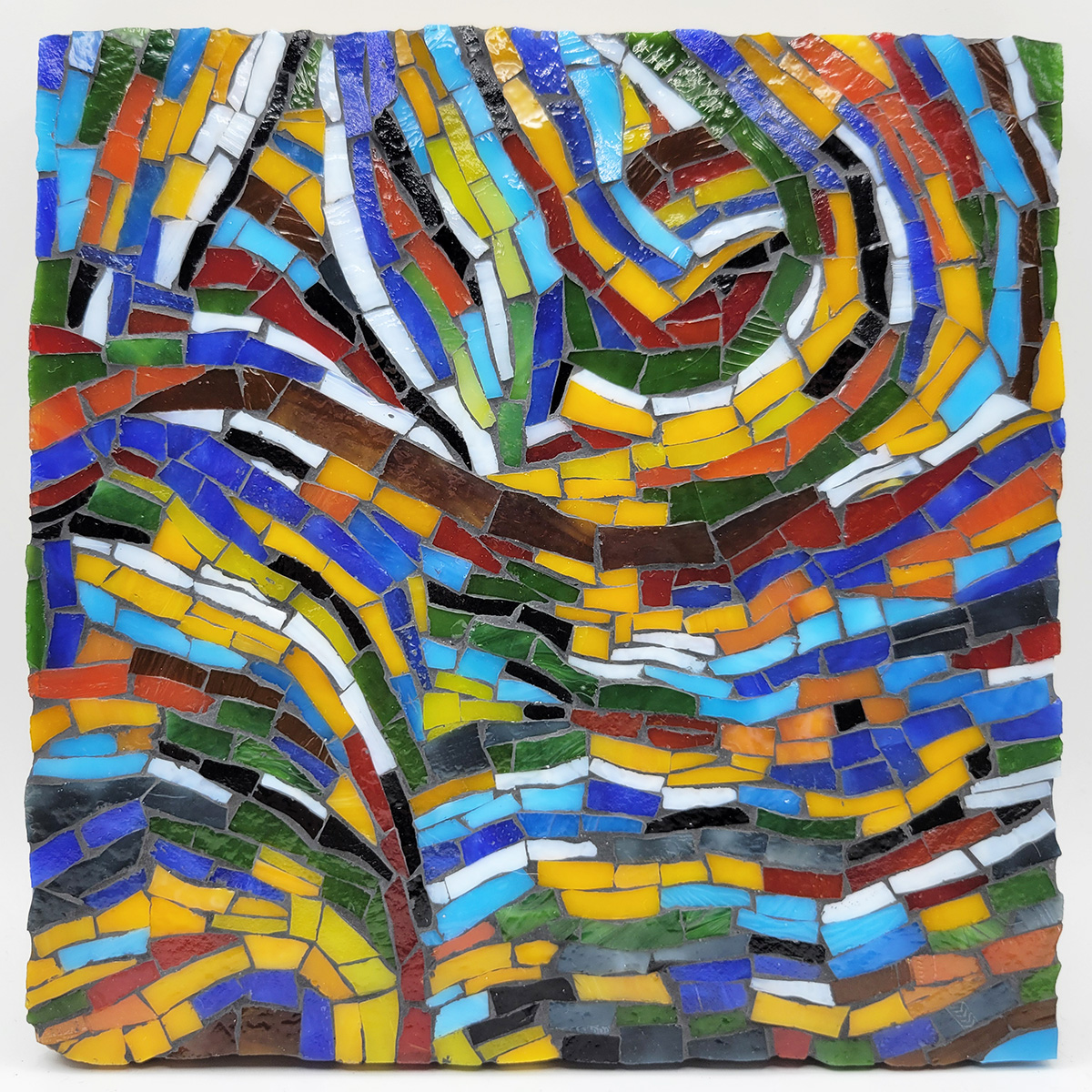
Leave a Reply